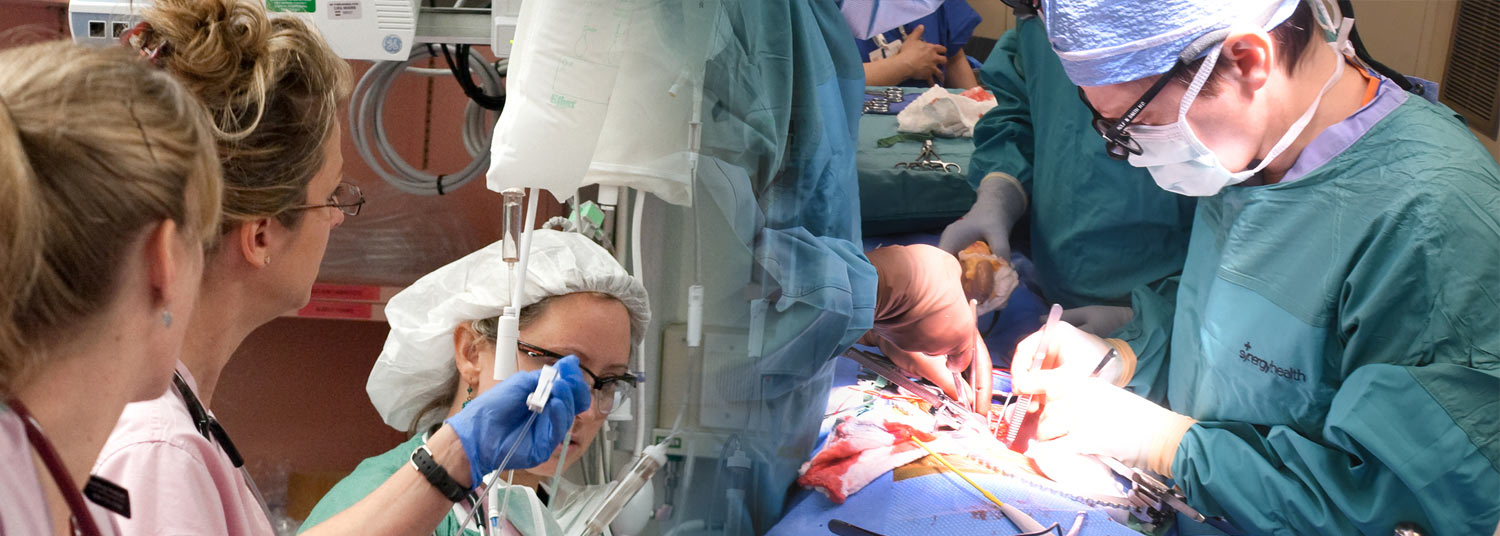December 13, 2023 | Holly Moody-Porter
UMSOM team to provide trauma datasets to help predict the need for lifesaving interventions in real time
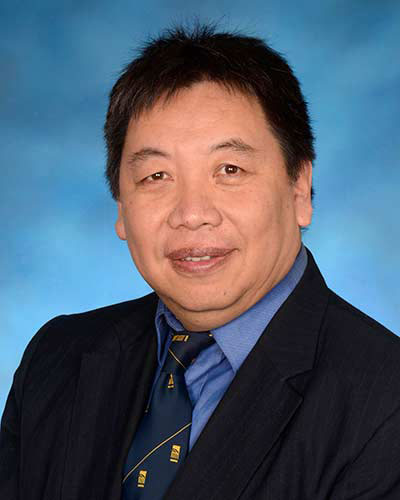 In an effort to better optimize the triage of patients during mass casualty events, University of Maryland School of Medicine (UMSOM) researchers are receiving up to $7.3 million in funding from the Defense Advanced Research Project Agency (DARPA) for vital new research. The funding will be used to support a study that will collect data over the next 3.5 years on trauma patients with the aim of identifying and implementing lifesaving advancements in medical triage for large-scale mass casualty incidents.
In an effort to better optimize the triage of patients during mass casualty events, University of Maryland School of Medicine (UMSOM) researchers are receiving up to $7.3 million in funding from the Defense Advanced Research Project Agency (DARPA) for vital new research. The funding will be used to support a study that will collect data over the next 3.5 years on trauma patients with the aim of identifying and implementing lifesaving advancements in medical triage for large-scale mass casualty incidents.
“The importance of early interventions in trauma is described as the concept of the ‘golden hour’, which means the first hour of trauma care is very important,” said study Principal Investigator Peter Hu, PhD, Professor of Anesthesiology at UMSOM and Chief Technologist at the R Adams Cowley Shock Trauma Center at the University of Maryland Medical Center (UMMC). “When disasters happen, if we can use machine learning to rapidly predict the need for lifesaving interventions, we can be more effective in triage – especially in situations where medical personnel are limited.”
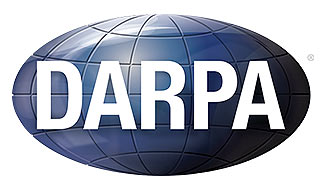 DARPA’s Research Infrastructure for Trauma with Medical Observations (RITMO) effort, which is funding the study, aims to create a single database of de-identified trauma patient data derived from the early post-injury period. The RITMO program is the foundational data component of the DARPA Triage Challenge, a 3.5-year challenge designed to drive the development of physiological ‘signatures’ of injury that will help medical responders quickly assess patient vital signs, make triage decisions and render aid to the critically injured in military and civilian mass casualty incidents. Mass casualty incidents involve multiple injured patients and can include large-scale traffic accidents, natural disasters like hurricanes or wildfires, or violent attacks like mass shootings.
DARPA’s Research Infrastructure for Trauma with Medical Observations (RITMO) effort, which is funding the study, aims to create a single database of de-identified trauma patient data derived from the early post-injury period. The RITMO program is the foundational data component of the DARPA Triage Challenge, a 3.5-year challenge designed to drive the development of physiological ‘signatures’ of injury that will help medical responders quickly assess patient vital signs, make triage decisions and render aid to the critically injured in military and civilian mass casualty incidents. Mass casualty incidents involve multiple injured patients and can include large-scale traffic accidents, natural disasters like hurricanes or wildfires, or violent attacks like mass shootings.
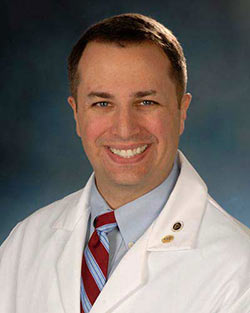 “As a member of our armed forces, I am proud to see our faculty collaborate on the development of this cutting-edge technology in trauma triage,” said Col. Samuel Galvagno, DO, PhD, MS, MBA, FCCM Professor and Interim Chair of the Department of Anesthesiology at UMSOM, Interim Chief of Anesthesiology at UMMC and a General Officer in the United States Air Force Reserve. “This work extends beyond military combat and will universally transform how we approach trauma care.”
“As a member of our armed forces, I am proud to see our faculty collaborate on the development of this cutting-edge technology in trauma triage,” said Col. Samuel Galvagno, DO, PhD, MS, MBA, FCCM Professor and Interim Chair of the Department of Anesthesiology at UMSOM, Interim Chief of Anesthesiology at UMMC and a General Officer in the United States Air Force Reserve. “This work extends beyond military combat and will universally transform how we approach trauma care.”
The UMSOM team will collect de-identified data on trauma patients ages 18 to 65 who are admitted to the R Adams Cowley Shock Trauma Center over the next three years. Data collected will include continuous patient vital signs and lifesaving medical intervention data through each stage of trauma triage including field care, helicopter transport, trauma center reception, and resuscitation and stabilization. The UMSOM team will also contribute additional indicators of patient status such as brain and tissue oxygen readings to help identify potential neurological injuries.
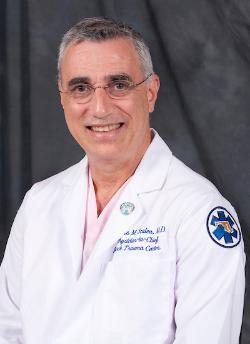 “With minute-by-minute patient data, we can have a clearer picture of where a patient is deteriorating and prepare our trauma teams with critical answers such as how much blood may be needed upon arrival,” said Thomas Scalea, MD, The Honorable Francis X. Kelly Distinguished Professor of Trauma Surgery at UMSOM, Director of the Program in Trauma, and Physician-in-Chief of the Shock Trauma Center. “Being able to obtain real-time insights before patients reach the trauma center is pivotal in the advancement of the triage process.”
“With minute-by-minute patient data, we can have a clearer picture of where a patient is deteriorating and prepare our trauma teams with critical answers such as how much blood may be needed upon arrival,” said Thomas Scalea, MD, The Honorable Francis X. Kelly Distinguished Professor of Trauma Surgery at UMSOM, Director of the Program in Trauma, and Physician-in-Chief of the Shock Trauma Center. “Being able to obtain real-time insights before patients reach the trauma center is pivotal in the advancement of the triage process.”
Findings from this new study will also be used in a separate RITMO initiative called the DARPA Triage Challenge data competition. Teams in the data competition are challenged to develop algorithms that will detect the signatures of injury through non-invasive sensors. This will provide insights that will enable accuracy in triage decision-making such as prioritization for medical evacuation.
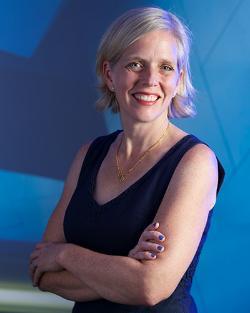
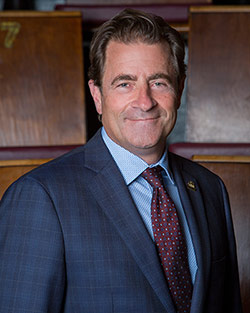 “The number of U.S. shootings with multiple victims has nearly doubled over the past five years to more than 600 shootings per year, which underscores the dire need to advance new triage technologies,” said Mark T. Gladwin, MD, the John Z. and Akiko K. Bowers Distinguished Professor and Dean, UMSOM, and Vice President for Medical Affairs, University of Maryland, Baltimore. “Combining high-resolution physiological data with machine-learning tools will ultimately yield a new form of precision medicine in critical care to better assess a trauma patients’ immediate needs with the ultimate aim of saving lives.”
“The number of U.S. shootings with multiple victims has nearly doubled over the past five years to more than 600 shootings per year, which underscores the dire need to advance new triage technologies,” said Mark T. Gladwin, MD, the John Z. and Akiko K. Bowers Distinguished Professor and Dean, UMSOM, and Vice President for Medical Affairs, University of Maryland, Baltimore. “Combining high-resolution physiological data with machine-learning tools will ultimately yield a new form of precision medicine in critical care to better assess a trauma patients’ immediate needs with the ultimate aim of saving lives.”
Over the past 10 years, Dr. Hu and his colleagues have received $35 million in grant funding to contribute data and aid the development of lifesaving interventions in trauma. He is also working on other research to predict the early need for blood transfusions in mass casualty incidents.
To learn more about RITMO program and the DARPA Triage Challenge visit triagechallenge.darpa.mil.
About the University of Maryland School of Medicine
Now in its third century, the University of Maryland School of Medicine was chartered in 1807 as the first public medical school in the United States. It continues today as one of the fastest growing, top-tier biomedical research enterprises in the world -- with 46 academic departments, centers, institutes, and programs, and a faculty of more than 3,000 physicians, scientists, and allied health professionals, including members of the National Academy of Medicine and the National Academy of Sciences, and a distinguished two-time winner of the Albert E. Lasker Award in Medical Research. With an operating budget of more than $1.2 billion, the School of Medicine works closely in partnership with the University of Maryland Medical Center and Medical System to provide research-intensive, academic, and clinically based care for nearly 2 million patients each year. The School of Medicine has more than $500 million in extramural funding, with most of its academic departments highly ranked among all medical schools in the nation in research funding. As one of the seven professional schools that make up the University of Maryland, Baltimore campus, the School of Medicine has a total population of nearly 9,000 faculty and staff, including 2,500 students, trainees, residents, and fellows. The School of Medicine, which ranks as the 8th highest among public medical schools in research productivity (according to the Association of American Medical Colleges profile) is an innovator in translational medicine, with 606 active patents and 52 start-up companies. In the latest U.S. News & World Report ranking of the Best Medical Schools, published in 2023, the UM School of Medicine is ranked #10 among the 92 public medical schools in the U.S., and in the top 16 percent (#32) of all 192 public and private U.S. medical schools. The School of Medicine works locally, nationally, and globally, with research and treatment facilities in 36 countries around the world. Visit medschool.umaryland.edu
About the R Adams Cowley Shock Trauma Center
The R Adams Cowley Shock Trauma Center, University of Maryland Medical Center was the first fully integrated trauma center in the world and remains at the epicenter for trauma research, patient care and teaching, both nationally and internationally today. Shock Trauma is where the "golden hour" concept of trauma was born and where many lifesaving practices in modern trauma medicine were pioneered. Shock Trauma is also at the heart of the Maryland's unparalleled Emergency Medical Service System. Learn more about Shock Trauma.
Contact
Holly Moody-Porter
Senior Media & Public Relations Specialist
Office of Public Affairs & Communications
University of Maryland School of Medicine
Email: hmoody@som.umaryland.edu
o: 410-706-4255
c: 443-939-4024
Related stories
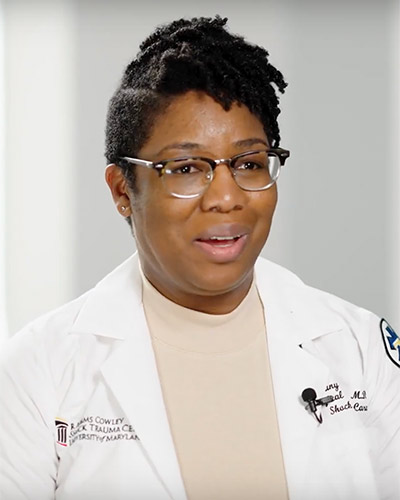
Monday, August 04, 2025
New Review Highlights Significant Need for Comprehensive Care for Gun Violence Survivors
A new review article published in JAMA underscores the critical need for comprehensive long-term medical care for patients treated for firearm injuries, which has become an epidemic in the U.S. fueled by years of rising gun violence. More than 48,000 people died of firearm injuries in the U.S. in 2022, according to the Centers for Disease Control and Prevention with 120,000 suffering from gunshot wounds that they recover from.
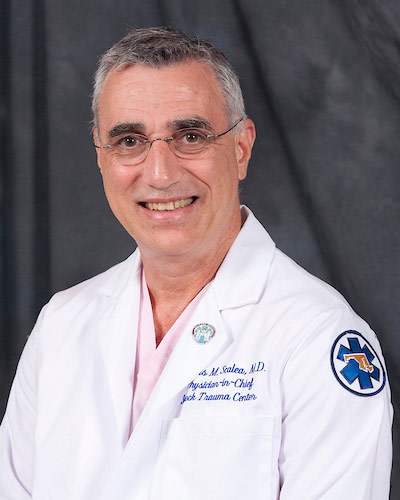
Wednesday, July 20, 2022
University of Maryland School of Medicine Faculty Member Featured on NBC Nightly News Special Report on Gun Violence in America
A University of Maryland School of Medicine (UMSOM) faculty member was featured in a prestigious national news program over the weekend highlighting the lifesaving critical care medicine practiced at the R Adams Cowley Shock Trauma Center at the University of Maryland Medical Center (UMMC). In an extended segment called “One Night in America” that comprised half of the evening newscast for NBC Nightly News and additional coverage on MSNBC, a reporter was embedded in the trauma center from Saturday evening, July 16, into Sunday morning to document emergency trauma cases caused by gun violence. Reporters were also embedded in three other major cities showing different perspectives including police response to shootings and community support from a local street pastor.

Wednesday, January 19, 2022
World-Renowned University of Maryland School of Medicine Trauma Surgeon and Physician-Scientist Celebrates 25th Anniversary
As the Honorable Francis X. Kelly Distinguished Professor of Trauma Surgery and Director of the Program in Trauma at the University of Maryland School of Medicine (UMSOM) and Physician-in-Chief of the R Adams Cowley Shock Trauma Center at the University of Maryland Medical Center (UMMC), Thomas M. Scalea, MD, FACS, MCCM, has pioneered advances to trauma care for patients in the United States and around the world. He has cared for tens of thousands of Marylanders critically injured in motor vehicle collisions, falls and violent attacks, traveled to China and Haiti to render assistance to earthquake victims, helped train thousands of U.S. Air Force personnel and worked alongside military physicians in war-torn Afghanistan. He has steered Maryland’s highest-level trauma center through two years of the COVID-19 pandemic.
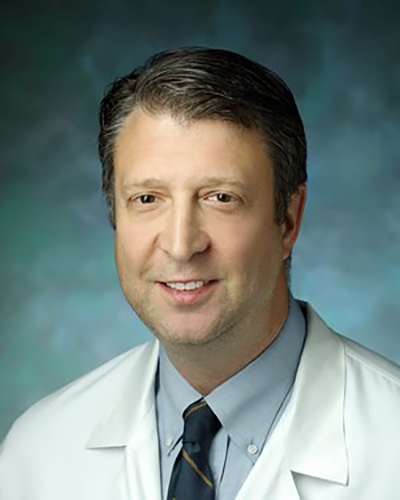
Tuesday, July 21, 2020
University of Maryland School of Medicine Names Renowned Trauma Surgeon-Scientist, Dr. David Efron, as Professor of Trauma Surgery and New Chief of Trauma
Thomas M. Scalea, MD, the Honorable Francis X. Kelly Distinguished Professor of Trauma Surgery and Director of the Program in Trauma at the University of Maryland School of Medicine (UMSOM), and Physician-in-Chief at the UM R Adams Cowley Shock Trauma Center, along with UMSOM Dean, E. Albert Reece, MD, PhD, MBA, announced today that David Thomas Efron, MD, one of the leading trauma surgeon-scientists in the U.S., will become the Inaugural Thomas M. Scalea Distinguished Professor of Trauma Surgery in the Department of Surgery, Chief of Trauma and Medical Director of the R. Adams Cowley Shock Trauma Center. He will begin his new position effective September 1.

Wednesday, October 26, 2016
Researchers Develop System to Classify Gunshot Wounds and Other Similar Injuries to the Head
Every year, more than 32,000 Americans die from gunshot wounds. A significant proportion of these deaths involve head wounds. Despite this massive public health burden, researchers know little about the variables that determine whether a victim of these injuries will live or die.

